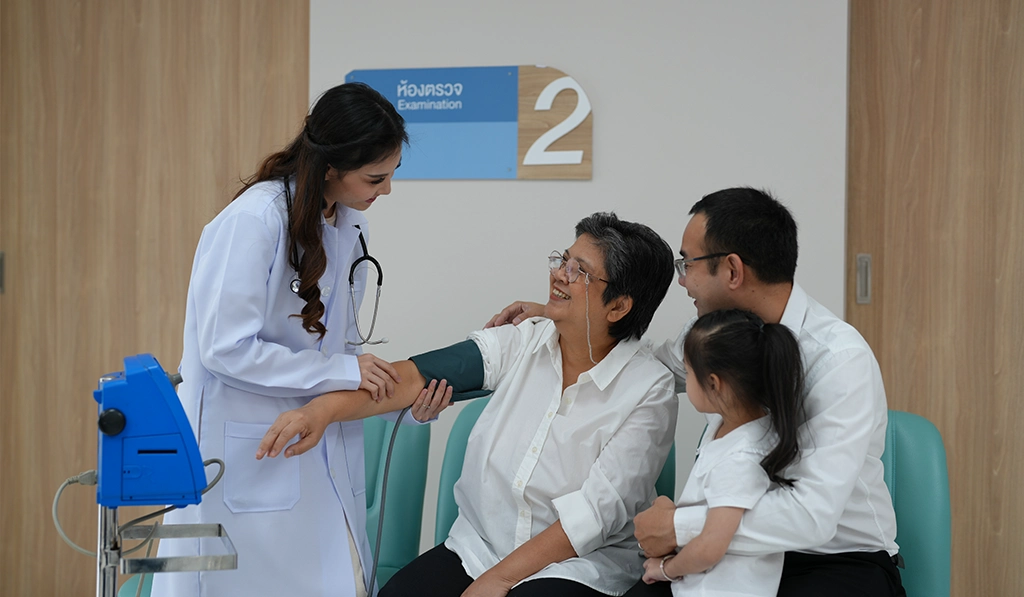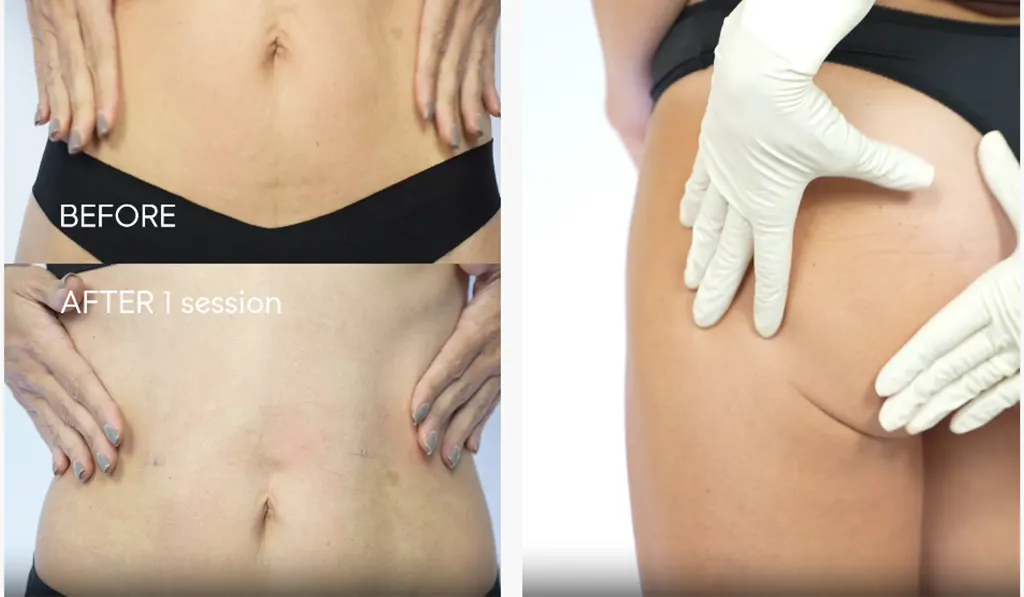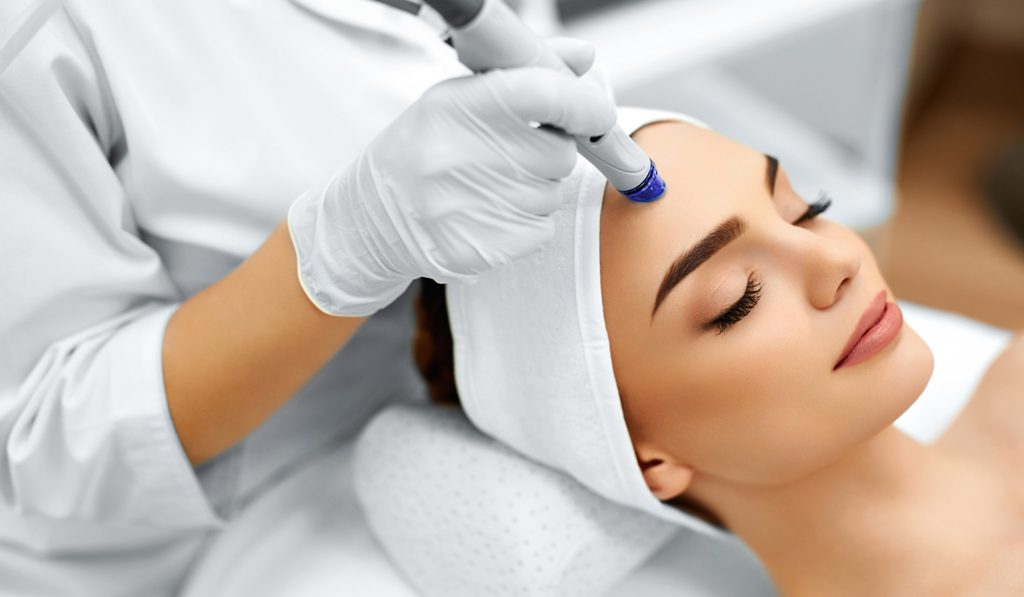In the field of general medicine, the importance of annual health check-ups cannot be denied. Conducted by healthcare professionals, routine health examinations play a crucial role in maintaining long-term health and overall preventive care.
The proactive monitoring of our well-being through annual check-ups can help detect premature signs of potential health risks, receive early treatment, and take adequate preventive measures to eliminate the impact of diseases. In this space, we explore the role of annual health check-ups and highlight the preventive measures they provide to our overall well-being.
The Importance of Annual Health Check-ups
At 7DMC, we provide varied health check-ups to ensure you have access to professional care in a safe environment. Annual health check-ups can come to your aid in a variety of ways, the primary among them being the following aspects.
Early Detection and Treatment
Annual health check-ups enable doctors to identify, diagnose, and address health concerns in their primitive stages, improving the odds of successful treatment and healthier outcomes.
Monitoring Chronic Conditions
People with pre-existing health conditions gain from annual check-ups as they help manage their conditions, adjust treatment plans, and eliminate complications.
Disease Prevention
Through annual check-ups, healthcare professionals can note and assess risk factors, offer necessary vaccinations, and provide guidance on lifestyle changes and modifications to prevent the onset of various diseases.
Health Education and Promotion
Check-ups provide an avenue for healthcare professionals to spread awareness among patients on disease prevention, healthy living practices, and the management of chronic medical conditions.
Mental Health Assessment
Annual health check-ups offer an opportunity for healthcare providers to assess mental well-being, identify stressors, diagnose conditions, and promptly address mental health concerns.
The Role of Healthcare Professionals
Healthcare professionals and doctors play a vital role in conducting annual health check-ups. Their knowledge in general medicine empowers them to.
- Assess symptoms and accurately diagnose health conditions.
- Suggest appropriate medications and treatment plans.
- Guide lifestyle modifications and preventive measures.
- Provide support and counselling to address emotional and mental well-being.
- Refer patients to special medical professionals or additional diagnostic tests if required.
Preventive Measures Offered by Regular Check-ups
Annual health check-ups serve as a foundation of preventive medicine, encompassing varied measures that add to long-term health and well-being. At 7DMC, we have an essential health check-up that you can sign up for, as well as separate health check-ups for men and women.
Here is a look at some of the key preventive measures generally implemented during annual health check-ups.
Health Screenings
Health check-ups usually involve screenings to detect potential medical issues before they manifest into something bigger. These screenings typically include blood glucose tests, cholesterol checks, blood pressure measurements, cancer screenings (such as colonoscopies and mammograms), and screenings for Sexually Transmitted Infections (STIs). Premature detection enables prompt intervention and improves the odds of successful treatment.

Vaccinations
Immunisations are a rudimentary aspect of preventive healthcare. Healthcare professionals administer vaccines to protect against dangerous and infectious diseases such as influenza, hepatitis, Human Papillomavirus (HPV), and pneumonia, among others. People can significantly lower their risk of contracting such ailments by receiving early vaccinations from a certified vaccination centre in Dubai.
Disease Monitoring and Management
Regular check-ups are essential for individuals with chronic conditions such as asthma, diabetes, or hypertension. With the help of monitoring, doctors can evaluate disease progression, adjust treatment plans, and offer ongoing support to treat these conditions seamlessly. This proactive method aids in preventing complications and encourages better disease control.
Risk Assessment and Management
Healthcare providers evaluate individual risk factors based on lifestyle choices, medical history, and family history. This information aids in identifying potential areas of concern and formulating customised preventive strategies. For instance, if someone has a family history of lung disease, the healthcare provider may recommend regular respiratory screenings and lifestyle modifications to lower the risk.
Health Counselling and Education
During annual health check-ups, doctors provide valuable counselling and education to encourage healthy habits and prevent disease. This may include discussions on physical activity, nutrition, stress management, smoking cessation, and maintaining a healthy body weight. Adopting these lifestyle modifications can significantly help individuals lower the risk of chronic diseases and improve their overall well-being.
What Should One Expect in an Annual Health Checkup?
A full-body annual health checkup typically includes the following aspects.
General Appearance
Doctors can gather a large amount of information about your health just by simply observing you. Looking at your hair, skin, walk, posture, mental alertness and several other allied elements, your healthcare provider can narrow down on things that might be wrong.
Checking Vitals
Blood pressure and heart rate are checked as part of the check-ups, and this is mostly important if your family has a history of heart disease.
Height & Weight Measurement
Measuring height and weight can help offer a baseline to monitor your health and BMI (Body Mass Index). A sudden gain or loss in weight can help the doctor note certain health issues that you might have.
Personal History & Health Concerns
This is when the healthcare provider will ask you about any health concerns that you might have. The doctor may also ask about some lifestyle habits, such as excessive alcohol use, smoking, sexual health, exercise, and diet.
Physical Exam
In the physical exam, the healthcare professional will assess each organ in the system through a physical exam to note if there are any issues that you might be facing.
Understanding Family Health History
This is vital in identifying some diseases or ailments that might be genetic or hereditary or that can be triggered due to certain lifestyle habits in the family.
Your Medication List Review
The healthcare professional would want to know about the supplements and medicines you are taking, as this information can help prevent dangerous drug interactions.

Tests and Screenings
Tests and screenings would include blood tests, which are typically personalised for your sex and age group. After the healthcare professional has these reports, they will be able to refer, advise and guide you adequately in terms of where you are healthwise.
Lung Examination
To evaluate if there are any signs of heart or lung disease, the healthcare provider will use the stethoscope to listen to wheezes, crackles, and breath sounds.
Heart Examination
The healthcare professional will use a stethoscope and assess your heart to detect a heart murmur, any irregular heartbeat, or any other clues associated with heart disease.
Abdominal Examination
With the help of this exam, the doctor will assess if your liver size is fine and if there is the presence of any abdominal fluid. They will also check bowel sounds to check for palpation and tenderness.
Head and Neck Examination
With head and neck examinations, the healthcare provider will check your tonsils and overall throat, along with your gums and teeth and as they are also major indicators of your overall health. Nose, ears, sinuses, eyes, thyroid, lymph nodes, and carotid arteries will also be properly examined.
Dermatological Examination
Dermatological examination helps check your skin and nails since these could denote a dermatological condition or disease somewhere else in the body. You can also get recommendations for any aesthetic treatment if you need.
Neurological Examination
Through the neurological examination, the healthcare provider will check your muscle strength, reflexes, nerves, and balance, along with your mental state, to ensure your nervous system is optimally functioning.
Extremities Examination
As a part of the extremities examination, the healthcare provider will look for sensory and physical changes and will check pulses in your arms and legs. In addition, your joints will also be examined.
To Conclude
Please note that annual health check-ups are an investment in your long-term health. By partnering with us at 7DMC, you can proactively manage your health and enjoy a stress-free, higher quality of life.
Our goal is to provide you with a customised health assistance that can help you determine your current status of health status, to understand and predict the future risks and to build a unique, personalised lifestyle plan for you that can help you lead a fit and healthy life.















